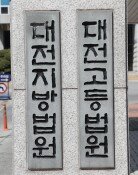Public Support in General Election Shows Adjustment
Public Support in General Election Shows Adjustment
Posted March. 28, 2004 23:06,
As the popularity of the Uri Party, which has sharply increased since the passage of the impeachment bill in the National Assembly on March 12, decreases while public support for the opposition Grand National Party (GNP) shows sign of recovery, the configuration in terms of public support for each party has a tendency to be resettled facing an upcoming general election.
According to the results of a public opinion poll conducted by the Korea Research Center (KRC) and requested by Dong-A Ilbo targeting 1,000 Koreans above the age of 20 that was conducted via telephone, when those surveyed were asked which partys candidates they supported, candidates from the Uri Party accounted for 26.6 percent, the GNP 16.8 percent, the Democratic Labor Party, (DLP) 4.8 percent; the Millennium Democratic Party (MDP), 3.0 percent; and the United Liberal Democrats, 0.9 percent. The Uri Partys popularity decreased by 2.0 percent, and, on the contrary, the GNPs popularity increased by 2.1 percent, compared to an opinion poll conducted last Wednesday.
On item asking if the election of Rep. Park Geun-hye as the new head of the GNP will make a contribution to partys gaining votes, 68.5 percent provided positive answers, which is a 15.6 percent increase from the opinion poll held last Wednesday.
In addition, regarding the impeachment case, items such as we should punish them because the majority opposition party abused its power, regardless of public opinion, and such overwhelming power of the opposition party should be restricted, 66.9 percent and 56.9 percent of those surveyed respectively answered yes. This provides evidence that the judgment of the impeachment case and the restriction of majority opposition party will be the centerpiece of the upcoming general election.
Meanwhile, according to outcomes of another public opinion poll the Dong-A Ilbo conducted from last Thursday to last Saturday, targeting 100 electoral districts where high competitions are expected, the Uri Party leads in 75 districts, the DLP in 2 districts, the GNP in one district, and the other 22 districts show no particular preference.
However, since this poll only covered some districts out of a total 243 districts, which draw a lot of attention now, it is hard to say that the result reflects an overall picture of the electoral configuration.
In measuring proportional representation, 46.6 percent support was given to the Uri Party and 18.8 percent to the GNP, 8.0 percent to the DLP, and 3.3 percent to the MDP. Therefore, proportional representative seats in each party are expected to allot 34 seats to the Uri Party, 14 seats to the GNP, 6 seats to the MLP, and 2 seats to the MDP.
This public opinion poll has ±3.1 percent sample error and 95 percent confidence level. Another poll targeting over 500 voters in 100 electoral districts has a ±4.4 percent sample error and 96 percent confidence level.
sunny60@donga.com





![“배달 시키면 버렸는데”…피자 가운데 ‘그것’ 200% 활용 꿀팁 [알쓸톡]](https://dimg.donga.com/c/138/175/90/1/wps/NEWS/IMAGE/2026/01/07/133111146.3.png)

